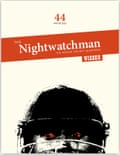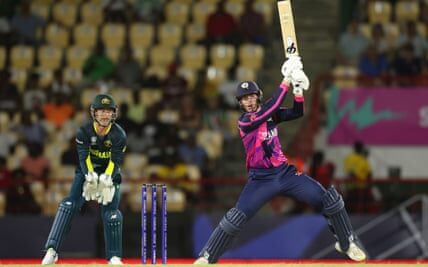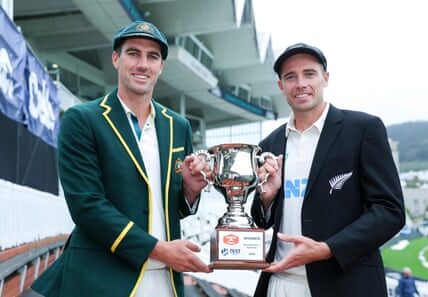A
Most people who have played cricket, even just a few games, have experienced this situation. It could be a powerful hit that catches you off guard, or a slow, easy catch that gives you too much time to overthink. In either case, the ball manages to escape the fielder’s reach and either patiently stays close by or quickly rolls away.
After the initial physical pain subsides, there are still other things to handle – the disapproving glances from the bowler, the teasing from teammates, and the fear that the ball might come at you again and mockingly elude you once more. Even after nearly 20 years, there is a specific drop that occurred at my club that is still mentioned, despite the person responsible (even the language used is accusatory) no longer being a part of the club for 15 years.
At this point, it is worth sparing a thought for those playing at a higher level, where such mistakes are recorded for posterity and analysed again and again. For example, Shane Warne, in addition to his mastery of leg-spin, was a great slip fielder but his drop at the Oval of his great friend Kevin Pietersen in the 2005 Ashes is almost as well known as his bowling exploits.
In 1994, wicketkeeper Chris Scott made a well-known drop. The incident is remembered not only because of the missed opportunity, but also because the batter at the time was Brian Lara. Lara went on to score an impressive 501 not out, despite only being on 18 when the drop occurred.
Cricket has long had an obsession with firsts – Lara’s score was the first first-class score of over 500; his West Indies teammate Courtney Walsh was the first to reach 500 Test wickets. Some firsts are less flattering. John Tufton, for instance, was the first player recorded to have been given out LBW, in 1795.
There is only one individual who can hold the undesirable title of being the first documented person to miss a catch. Since the earliest cricket matches, players have experienced the ball slipping from their grasp after making contact with it. These mishaps were likely a topic of conversation on the field and in local establishments, potentially even mentioned in written communication.

Over time, all of the events were forgotten. This unintentional act of forgetting continued until 1744, as far as I know. This is when the first recorded dropped catch occurred. Even after nearly 300 years, one can easily imagine the embarrassment felt by Thomas Waymark. More than a hundred years after the incident, he was cruelly nicknamed the “immortal butterfingers” due to this one mistake.
Waymark was a well-known cricketer and one of the first to gain recognition. He was kept on by the Duke of Richmond due to his talent in cricket. When not playing, he worked as a groom. It is probable that he was born in Mitcham, Surrey, where the cricket club boasts to be one of the oldest in the world. His significance can be seen from the fact that a match in 1730 was likely cancelled because he was unwell.

During a time where there was significant effort put into coordinating and preparing for games, it was remarkable for a patron to cancel a game due to the illness of one of his non-aristocratic players. This shows how important the player must have been to the Duke’s potential for winning. Unfortunately, Waymark’s luck was not on his side as the poet James Love (also known as James Dance) happened to be present at the highly anticipated game on June 18th, 1744.
The game took place at the Artillery Ground, which still exists despite being surrounded by London’s urban expansion. It was a match between a team representing England, where Waymark was a player, and a team from Kent. The event was organized by Lord John Sackville, a prominent nobleman from Kent and Waymark’s generous supporter. It was a distinguished social event, and it is documented that Prince William, the Duke of Cumberland, who gained notoriety for his harsh suppression of the Jacobite rebellion in 1745, was present.
The game had a low score (common for that era) and was closely contested. England scored 40 points, with Richard Newland, a top player from Slindon in Sussex, contributing 18 of them. Kent responded with 53 points. In the second round, England performed better and scored 70 points, leaving Kent with 58 points needed for victory.
Towards the end of the game, Waymark experienced an unfortunate moment. The final pair at the wicket only needed three runs to win. According to James Love, the incident was recorded with Waymark’s identity poorly disguised.
“The mounting Ball, again obliquely driv’n,
Slicing through the untainted Æther, rising towards the heavens.
was a
Wicca was prepared; Wicca, as everyone must admit, was a
As reliable as a bird catcher.
throw us together or apart,
Regardless of whether it is the will of the gods or the force of destiny that brings us together or separates us,
It was decided that Kent would emerge victorious in their high determination.
The Youth unfortunately placed too much trust
Success and fortune are frequently tested and proven.
The faulty sphere, astonishingly unexpected!
He slipped through his outstretched hand.
“And ridiculed his grip.”
The drop occurred at an inopportune time, resulting in Kent ultimately winning the match. Whether Waymark would have received criticism if he came from a more prestigious background is uncertain, especially when comparing it to Love’s praise for Lord John Sackville’s catch in the same game.
Unfortunately for Waymark, Love’s poem was able to withstand the test of time and is now recognized as the oldest known poem about the game. Prior to this, any mentions of cricket were usually related to promoting matches or court cases where the sport was not the main focus.

Waymark was certainly a prominent figure in his era, earning a living through the sport and being one of the pioneers in doing so. His involvement in cricketing continued until 1749, when he was seen umpiring a game at Goodwood Park, the residence of the Duke of Richmond. The duke’s sons were also playing in the match. It’s easy to imagine Waymark reacting with a wry smile and possibly offering some words of encouragement when a catch was missed, saying something like “Don’t worry, we’ve all been there.”
Source: theguardian.com


